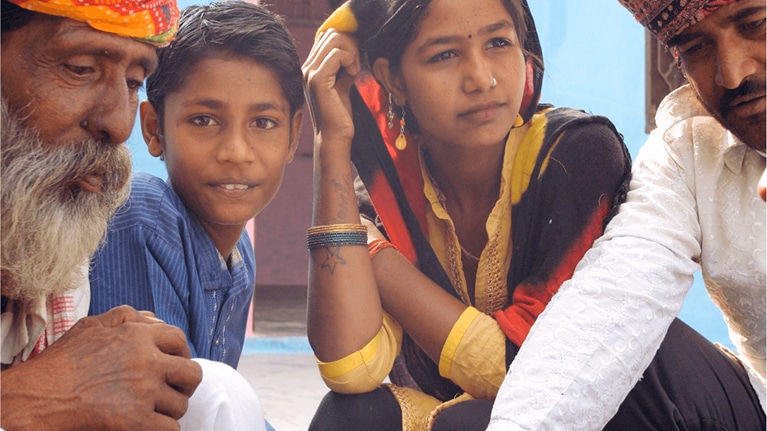Realizing this opportunity requires embracing a modernized understanding of health, including physical, mental, social, and spiritual health. It requires viewing health as an investment, not an expense. It requires scaling solutions that work. It requires dramatically more innovation and leadership from institutions outside of the traditional healthcare industry. It requires fully empowering individuals to steward their own health.
Achieving 45 billion years of higher-quality life requires us, as a society, to challenge our beliefs about health and reset health investments at a global scale.
What we do
MHI’s mission is to catalyze the actions and investment needed across continents, sectors, and communities to advance human health. We do this in four ways:
Convene and activate leaders
Bring leaders together across public, private, and social sectors to share learnings and take action
Advance research
Design, conduct, invest in, and share research in conjunction with an ecosystem of experts and partner institutions
Create and promote open-access data and tools
Work with partners globally to create tools and gather, integrate, enrich, and share data
Stimulate investment and innovation
Catalyze and scale investment and innovation through crowdsourcing, competition, mobilization, and transparency
Our founding perspectives
Humanity has the wealth, technology, capacity, and know-how to set and pursue a bolder aspiration for our health. To add up to 45 billion years of higher-quality life, MHI believes society must embrace a modern understanding of health as well as six material shifts in societal mindsets and actions.
Six societal shifts to catalyze action
1. Invest more, disproportionately on prevention and promoting optimal health
Health spending is an investment, not a cost. Governments and private institutions should invest more in areas like education, nutrition, basic research, consumer products, financial services, and technology. Currently, OECD countries spend just 2.8 percent of their health budget on prevention. Leaders in all countries should consider disproportionately investing in prevention and in promoting optimal health.
2. Improve measurement of health with better data
Effective resource allocation requires accurate measurement, but today there are huge gaps in comparative data. New global standards and systems are needed to measure health, collect significantly more data across all dimensions, and dramatically increase transparency.
3. Scale what works
There is great potential in applying proven strategies and interventions consistently and equitably across countries, systems, and populations. By scaling known interventions, we could reduce the global disease burden by about 40 percent. This means overcoming assumptions and biases, and establishing aligned strategies, policies, and incentives.
4. Innovate more, and more quickly
The world needs more innovation in all forms: business models, government policies, pharmaceuticals, clinical standards, mobile apps, medical products, process improvements, and novel technology applications. All stakeholders can be more rigorous in leveraging technology, data, and analytics to advance health. This level of innovation will require enabling regulation, novel regulatory mechanisms, increased collaboration, enhanced mechanisms to overcome market failures, and more effective nurturing and rapid scaling of promising concepts.
5. Unleash the full potential of all industries
Health is a relevant topic for all employers—not least given their environmental, social, and governance (ESG) aspirations and their responsibilities to employees. Healthcare companies represent 10 to 15 percent of the S&P 500 companies, and we believe a further 40 to 45 percent represent companies that offer products or services directly related to health. These institutions could benefit from pursuing health-related opportunities in traditional and emerging domains. Employers across all sectors can empower employees to improve their health and honor health-related ESG commitments.
6. Empower individuals to steward their own health
Individuals should be empowered to act as the primary stewards of their own health. Individual behaviors are the biggest drivers of health in many countries, and consumers expect more agency. Governments, providers, and innovators have an opportunity to embrace data and technology to help people take better control of their health.
Our founding research and insights
Founding perspective - McKinsey Health Institute
Adding years to life and life to years
-
At least six years of higher quality life for everyone is within reach.
Founding Perspective - McKinsey Health Institute
In sickness and in health: How health is perceived around the world
-
A new McKinsey Health Institute survey examines the views of residents in 19 countries on their physical, mental, social, and spiritual health.
Founding Perspective - McKinsey Health Institute
The secret to great health? Escaping the healthcare matrix
-
The blueprint to achieve a lifetime of great health is increasingly clear and within our control. But unlocking it requires challenging the orthodoxies currently guiding individuals and institutions.


